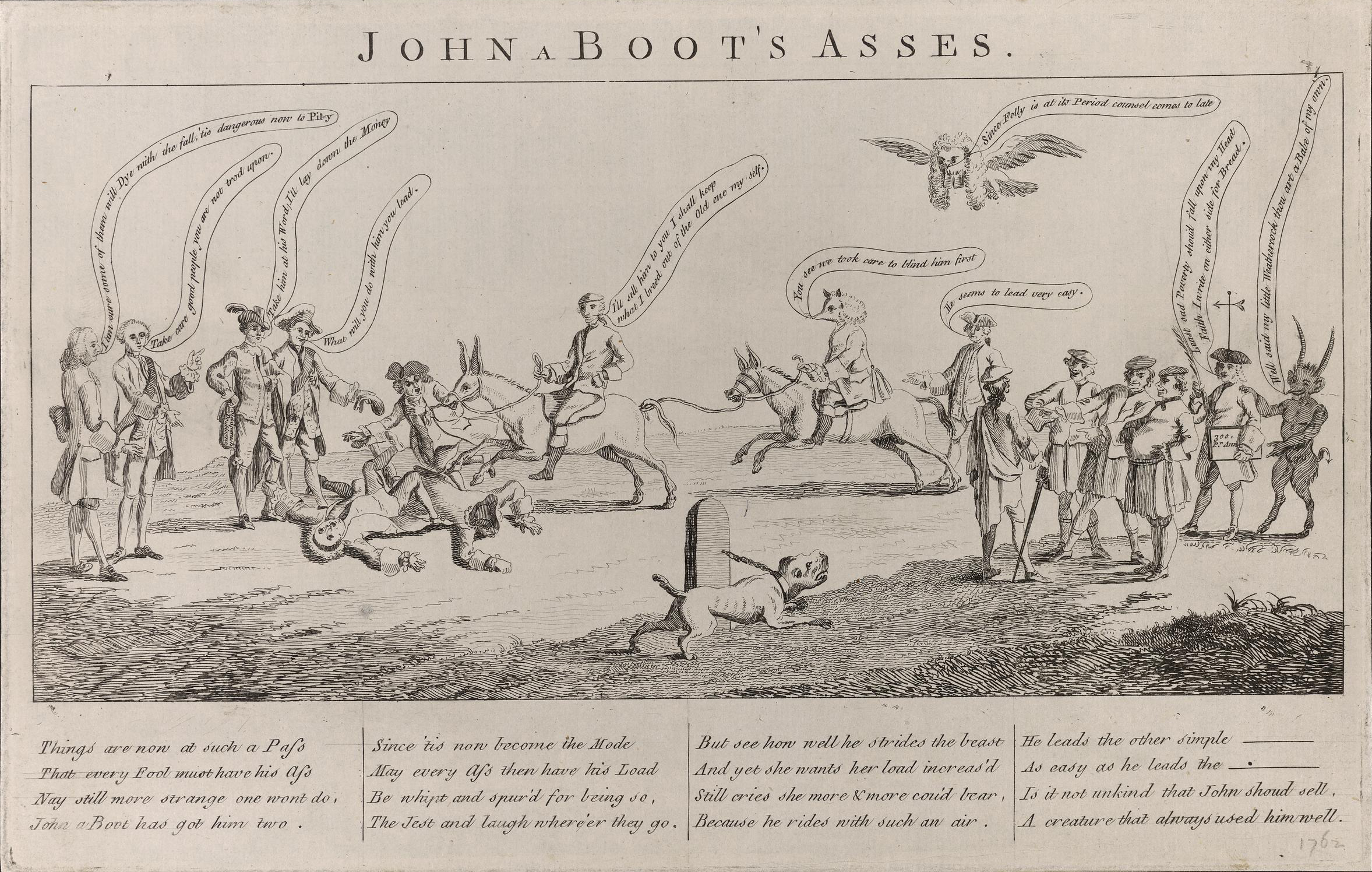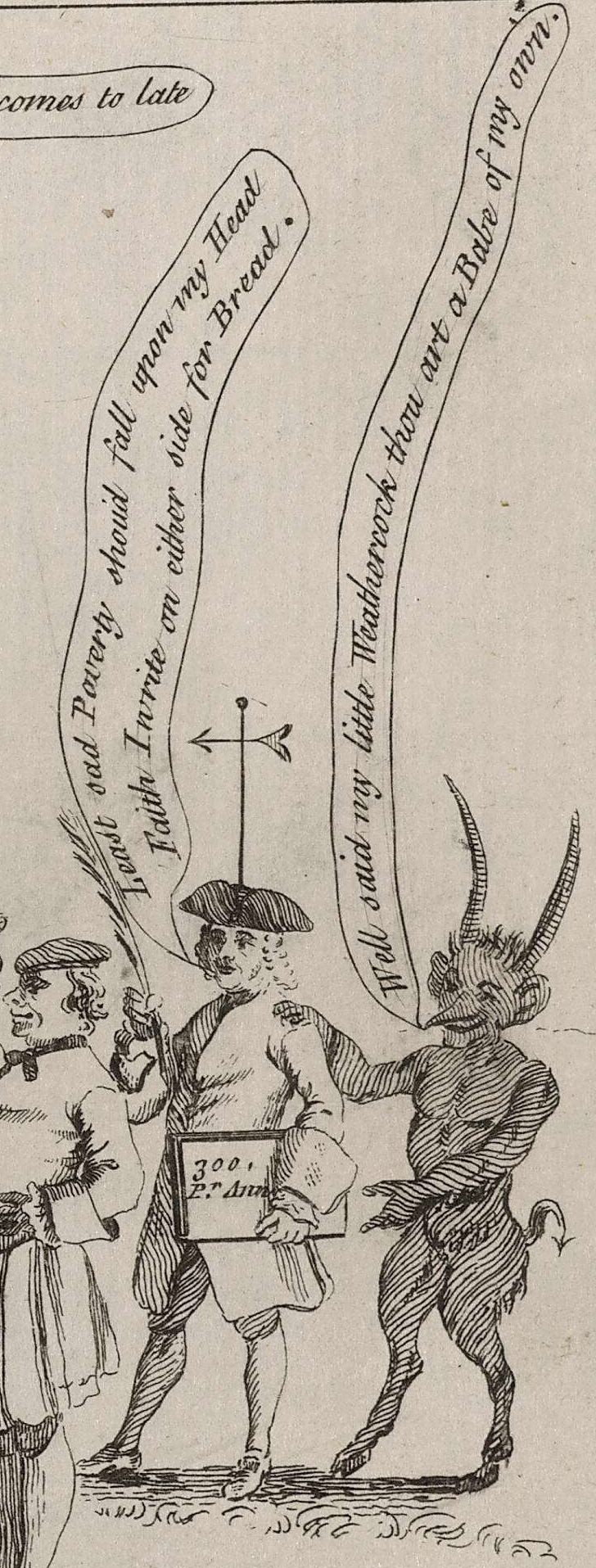
John a Boot's Asses
1762
British Museum J,1.88
Samuel Johnson is shown with a weathercock on his hat and holding a page reading "300 P.r Ann." A speech bubble from his mouth reads:
Least sad Poverty shou'd fall upon my Head
Faith I write on either side for Bread.
The devil standing to his right says, "Well said my little Weathercock thou art a Babe of my own."
The poem below the image reads:
Things are now at such a Pass
That every Fool must have his Ass
Nay still more strange one won't do,
John a Boot has got him two.
Since 'tis now become the Mode
May every Ass then have his Load
Be whipt and spur'd for being so,
The Jest and laugh wher'er they go.
But see how well he srides the beast
And yet she wants her load increas'd
Still cries she more & more cou'd bear,
Because he rides with such an air.
He leads the other simple __________
As easy as he leads the ___________
Is it not unkind that John should sell,
A creature that always used him well.
From the British Museum description:
Satire on Lord Bute as Prime Minister. He is shown riding an ass representing Princess Augusta which has just knocked down two Englishmen; behind him his ally Henry Fox is riding a blindfold ass representing the king whose bridle is attached to Bute's ass's tail; a man standing behind the second ass notes that "He seems to lead very easy". The man wearing a star and sash (presumably the duc de Nivernois, French Ambassador) offers a purse to Bute asking what he will do with "him you lead" (i.e. the king); Bute replies, "I'll sell him to you I shall keep what I breed out of the Old one myself". A Spaniard offers Bedford "Old Spanish Doubloons" with which to pay Bute. To the left, Pitt and Temple sympathise with the fallen Englishmen. A chained English mastiff barks at a group of Scots who look on with pleasure. On the far right, Samuel Johnson, a weathercock on his hat and and under his arm a portfolio lettered "300 pr ann", says that he prepared to "write on either side for Bread"; he is supported by a devil. Above flies an owl (Lord Mansfield) wearing a judge's wig expressing regret that he has come to late to counsel the king.

© The Trustees of the British Museum in the UK
This image is provided courtesy of the British Museum under a Creative Commons Attribution-NonCommercial-ShareAlike 4.0 International (CC BY-NC-SA 4.0) licence. In certain other jurisdictions it is considered to be in the public domain.